Leather paints are the most effective method for changing the color of leather or vinyl, offering full coverage of the original color and even the ability to lighten it—something leather dyes and balms cannot achieve.
Using a paint / coating to change color may require periodic touch-up and result in more maintenance than simply matching and restoring the original color. Absorbent aniline or semi-aniline leather will wear better than non-absorbent leather and vinyl that repel water.
This video shows how to change color of an absorbent semi-aniline leather chaise using Rub ‘n Restore® leather paint:
- 0:14 – Cleaning and prep
- 0:36 – The Tape Test
- 1:10 – Priming
- 1:45 – Mixing a glaze
- 3:02 – Testing color adhesion
- 4:30 – 1st coat glaze
- 5:59 – Discussion of quantity
- 7:00 – 2nd coat color
- 7:28 – Burnishing with a different color
- 8:36 – Buffing or sealing
- 9:53 – Before and after
This old video shows how to change a non-absorbent vinyl loveseat from dark green to a lighter tan with five coats of Rub ‘n Restore®:
- 0:00 – Intro
- 0:08 – Cleaning and prep
- 0:48 – First coat of color
- 1:36 – Second coat
- 2:10 – Third coat
- 2:36 – Fourth coat
- 2:54 – Fifth coat
- 3:12 – Final result
For the best results:
- Clean properly (especially if the leather or vinyl repels water).
- Stress test the color before doing the whole piece.
- If the material repels water, add 1 part special Satin Sealer to 4 parts color to improve durability.
- Apply thin coats, letting each completely dry. Less is more.
- Want some guidance? Submit a consultation.
The following are not good candidates for a color change due to the potential maintenance:
- changing from red / dark to white / pale;
- worn, cracking, scaly or thinning leather;
- furniture with lots of wrinkles, folds, deep creases (and therefore stress);
- pieces that are heavily used or harshly cleaned (kids, dogs, chemicals);
- car, boat or restaurant upholstery (consider SEM® Classic Coat or Marine Vinyl Coat*);
- bonded, faux or polyurethane (PU) ‘leather’ which repel all finishes (including their own).
Why is changing to white or off-white discouraged?
White (titanium) is a heavy mineral pigment. It doesn’t cover as well as medium tones like Clay, Taupe or Stone. This means you may use 2-3 times the normal quantity. The result will be a thicker, heavier and less flexible finish that may wear more easily and require more touch-up.
If you’re hell-bent on it, do a mix of equal parts Clay, special order Satin Sealer, and the desired color as a primer coat. The Clay will help cover, and the Satin Sealer will improve durability. Then work with a 2:1 up to 4:1 ratio of desired color and Satin Sealer for subsequent coats until coverage is achieved. Less is always more.
Here’s what wear and discoloration look like:
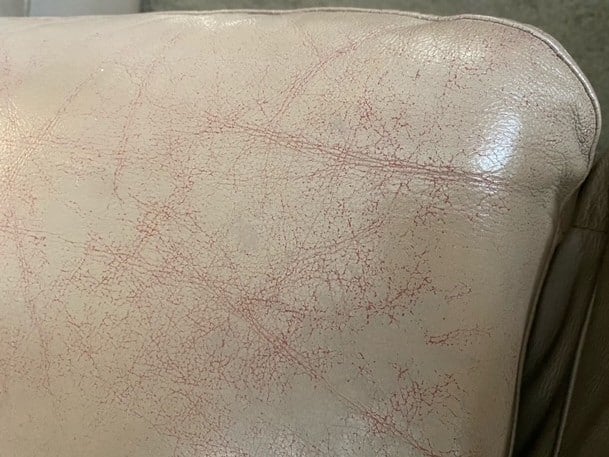
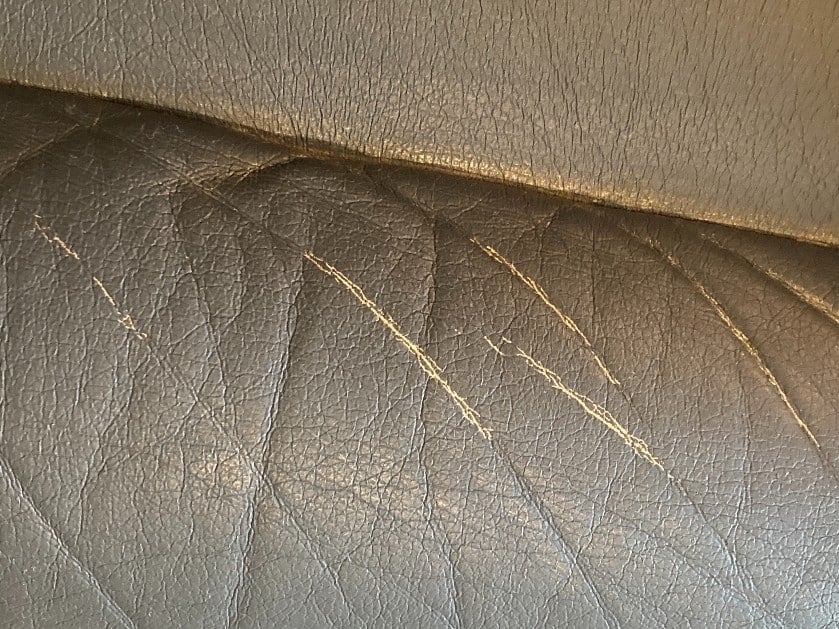
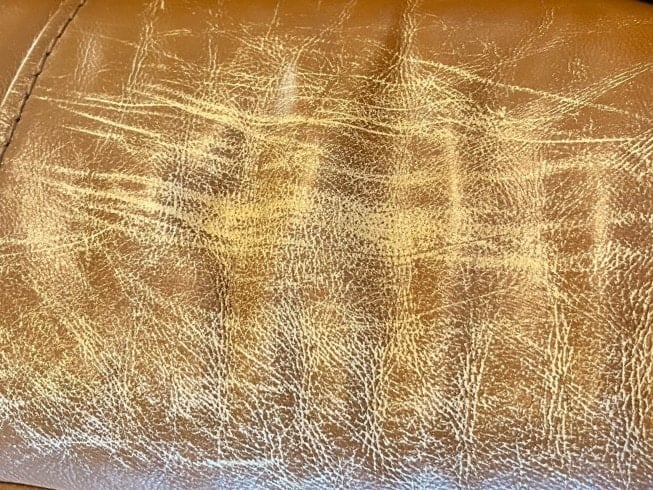
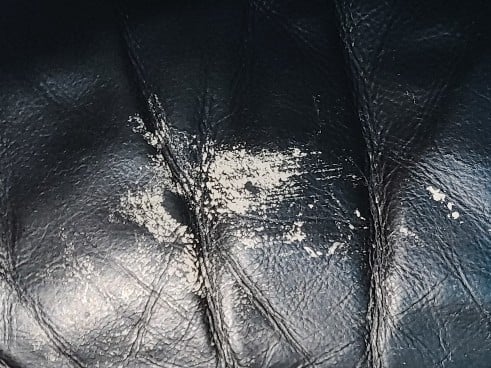
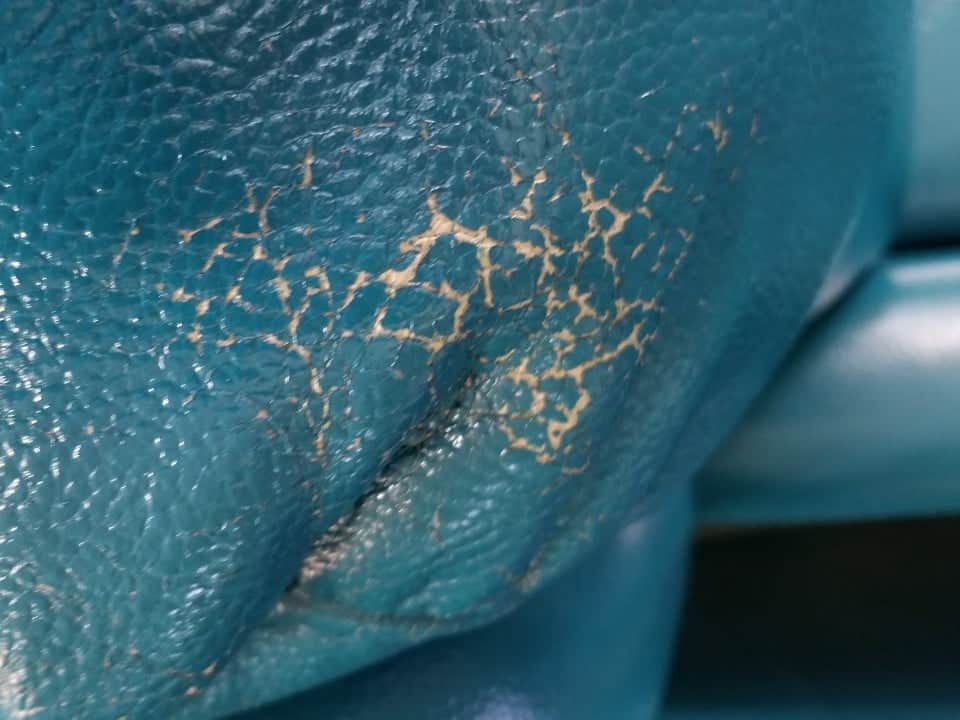
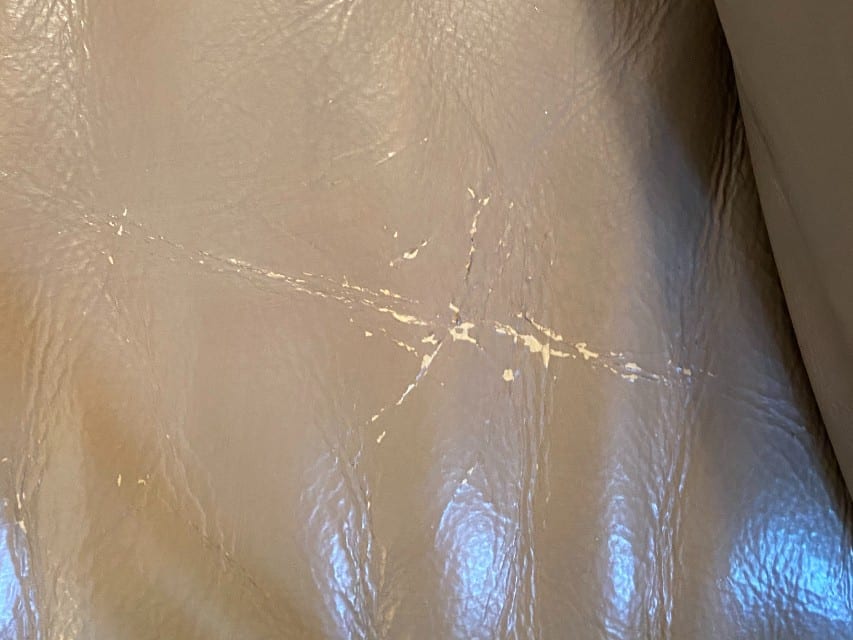
Touch-up is easy and mitigated by:
- choosing a color that is analogous to the original color (i.e. nearby on the color wheel);
- choosing a color with a similar value (light, medium or dark);
- dabbing or stippling the color to create a marbled or distressed appearance so future wear will look natural and intended.
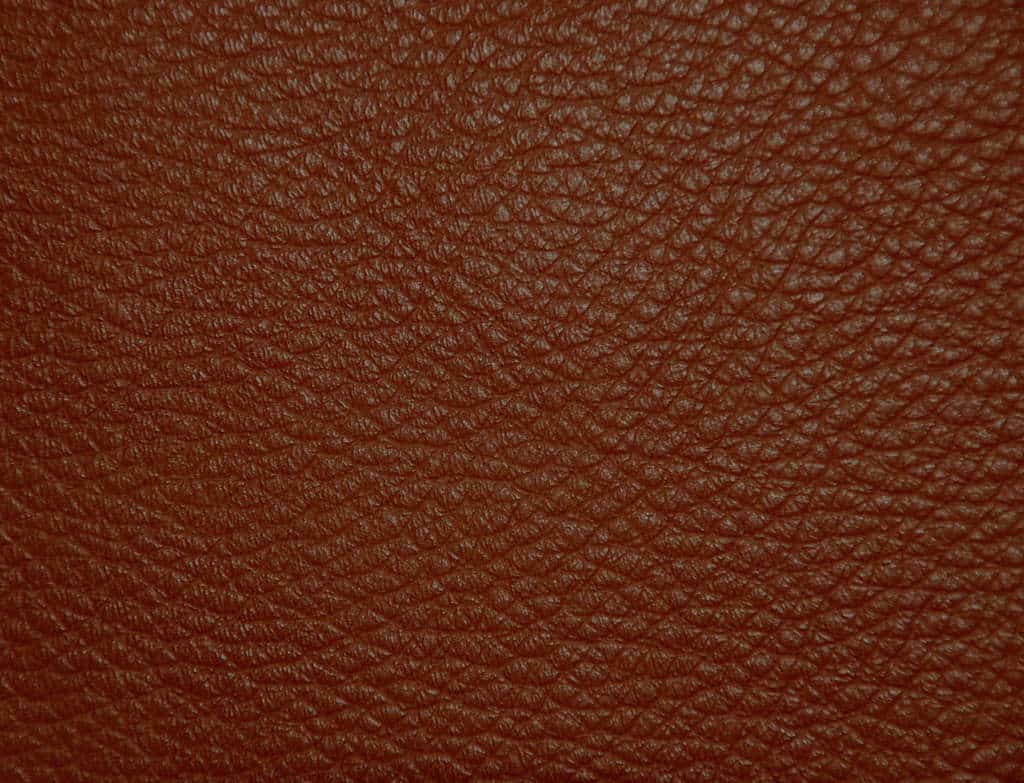
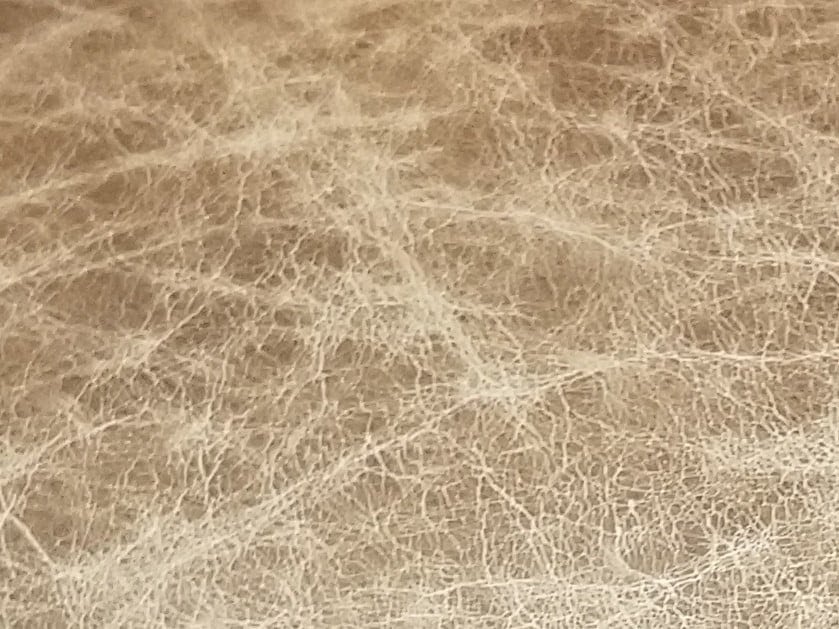
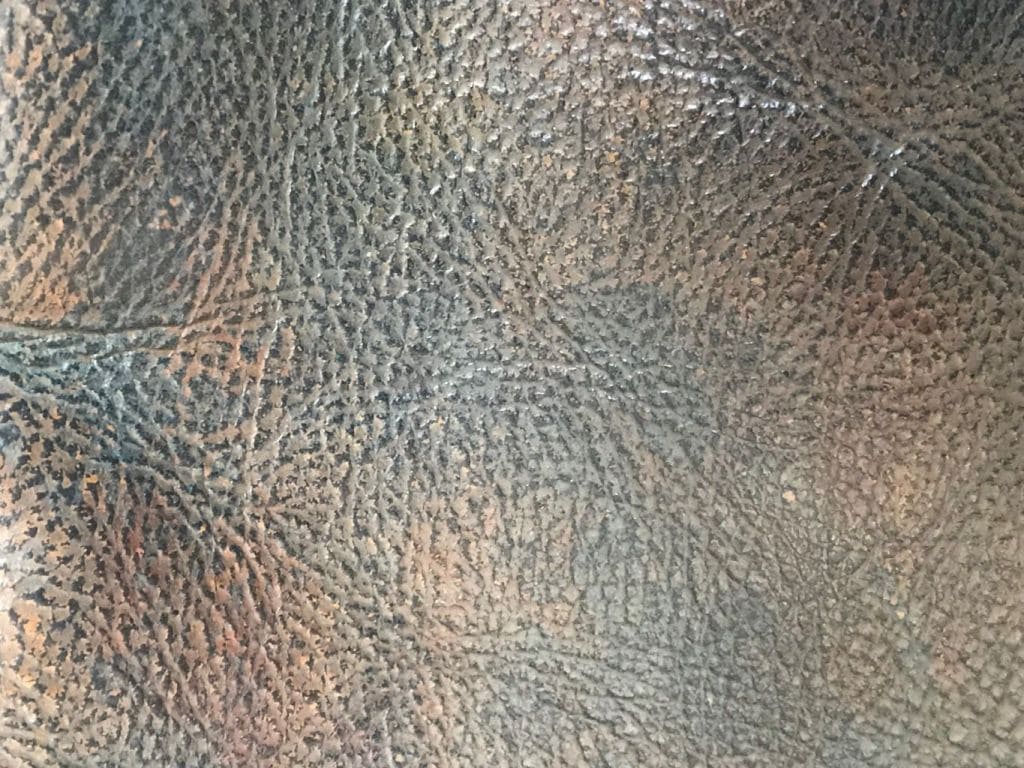
Our products are water-based acrylic finishes (paints). Acrylics may be less durable than urethanes, but they also don’t feel plasticky, crack or flake, so stripping and sanding are not needed prior to touching up.
* As an Amazon Associate, we receive a small commission for referring these products and appreciate you using these links.
Click here for more information about the different types of materials and the differences between paints, dyes and balms.
| Change Color | Match Color |
|---|---|
| More product needed | Less product needed |
| More labor required | Less labor involved |
| Touch-up likely and varies | Little to no touch-up |
| Available now | Wait until sample received; our turnover is swift |
| May be as expensive as matching, depending on scope of project | Matching fee; 8 oz. order minimum for Advanced Custom Color |
| Discouraged for auto, RV, boat interiors | Recommended for auto, RV, boat upholstery, primary or secondary colors |
Will your product work to dye the dash on my 2004 Silverado from gray to black
Let me guess, the original paint is peeling, revealing a black plastic beneath? This was a problem in that generation of GM dashes. Firstly, you’ve got to even out any disparity between the peeling coating and the original whether by sanding or stripping with a solvent like paint thinner. This might turn it into a real nightmare. Then I’d use a plastic primer followed by our black finish. It’s going to be much easier if you pull the windshield to color change the dash.
hi I want to change my couch colour from green to black
Can you change a recliner from cream to black? Would it require a lot of maintenance if you did so?
As per the article, touch-up varies with the quality and condition of the material and the type of use. Some folks go years with only minor touch-up on one cushion. Some notice they have to touch-up within the first month. Best you can do is test the color on a small high-traffic or worn area, let it dry, do a few coats, pinch and twist and stress the area, and see how it performs. Strip it off with alcohol immediately if it doesn’t perform well and return it.
Is going from off white to black or gray a problem?
No, it’s easier to go darker, but you may have to touch-up as discussed.
Can I go from brown to grey?
Yes!
I notice that in your video that you say water or other liquids may activate the dye. Is this case immediately following application, or is this for the life of the furniture? Do I have to worry that every time someone drips water or liquid onto the sofa that the dye is going to come off on them? Thank you!
This is before the color has cured.
Got dark brown leather sofa , can it be to bright white?
What do I need to order
We generally don’t recommend it. Whites get the poorest coverage (requiring double or triple the coats) and are also the heaviest pigment, which will add more weight to the surface. A good quality leather will take it well but will still require touch-up, and that varies with condition, stressors, etc. Lesser quality materials will be more challenging.
I would like to take my leather sectional from red to tan… your “Cognac” seems to be the color I’m looking for. Would you recommend putting Cognac over red?
Yes, Cognac will cover red well and complement it nicely if you do the popular distressing technique!
I bought the most amazing beige curved, leather sofa, covered in mostly superficial cat scratches. I spent hours deglazing, then buffing out the cat scratches. I then dyed the sofa with your brilliant white, three coats and finished off with two coats of your clear prep +finish. It is the wow factor in my great room. People think I paid thousands for the couch, little do they know. Now trying to find a leather recliner chair for my husband , that I can refinish, to match the couch. A very happy customer.
I have a gold (saddle color) sofa. It has been in a room rarely used and always has the seat area covered. Can I change to Stone Gray and start living on this comfortably without loosing gray color?
It’s going to require touch-up eventually. With so many variables, hard to know how long that’ll be. It’s always less maintenance to restore to original or something complementary.
I have a red leather recliner loveseat that is extremely comfortable and I hate to part with it. The problem is that I’m not in love with the RED anymore and would love to change the color. Can you advise as to what colors I could use to kill the red? Any advice and input will be most welcome.
Thanks.
A less dramatic change to a similar value or darker color (like any brown or black) will do better than going to the opposite of the color wheel (green) or a pale color like beige or off-white.
Thanks for getting back to me. 🙂
Hi. I have a black vinyl butterfly chair that is black which I’d like to charge to tan…will it work.
Yes, but as long it’s PVC (vinyl) and not PU (polyurethane).
I just purchased a new “white” leather couch. The white is definietly not white- has more cream in it. I would like to turn it to bright white. It is a large sectional and will be used daily by 2 kids. Will the white be able to withstand 2 kids and daily use?
Make sure it’s real leather and not polyurethane. If you change to a brighter white, definitely use a mottling technique to create a marbled look to mitigate the need for touch-up.
HaveA white couch that I would like to turn into a dark brown leather or black is this hard to do?
Some folks say it takes them days to do a color change. Others bang it out in an afternoon. There are a lot of variables at play. The greater question is if your piece is a good candidate (see the points above) and if you’re okay with occasional touch-up, as color changes can be more maintenance than restoring to original.
Hi, I have an olive green Italian leather sofa and love seat and brown chair that I want to change to bright white. It’s in good condition, the pillows are attached and it’s very smooth. Can this be done? What products and how much will I have to buy? suggestions?
Bright white is the hardest change. You’re better off with a lighter medium shade. Submit an evaluation if you want our professional opinion and tailored solution.
I have a dark brown leather couch in a beach house. I would love to lighten it and distress it. Do you have a product that would work for this? It looks so out of place being so dark but it is a great quality leather couch in great condition
Consider distressing with Stone, Taupe, or Camel diluted with 1/4 or 1/2 the volume of Clear Prep+Finish. This is called a glaze and makes distressing easier.
I have a red leather ottoman that I want to change to a teal color. Is this feasible? If so can you give me some advice please?
Yes, but try to determine that it’s not polyurethane or bonded leather first, and then submit the evaluation.
I am hoping to restore a natural hide lounge. I have ordered the product. The lounges are very old. Will go directly onto the Hide?
I am trying to change it to your grey.
Thank you
Our products are not recommended for nubuck or suede with a nappy texture. Smoother, absorbent leathers should do just fine, but you’re better off working with a glaze (color diluted with Clear Prep+Finish). More about types of leather is here.
I would like to paint a black leather couch to off white, taupe or tan, About how much would this project cost?
16 oz ($70) would be plenty to transform and maintain if using tan or taupe. White may take a 16 oz and additional 8 oz ($48). 8 oz Clear ($21) is optional for the former and a good idea on the latter.
Can I go from a brown leather bed frame to black? I’m scared lol
That’s an easy color change, and bed frames are not as high maintenance as couches or chairs. But as always, beware bonded, faux, polyurethane or polyester ‘leather’. They resist all coatings including their own.
What would you recommend for the process of turning a light grey suede couch to black?
Real suede is raw unfinished leather. Dyes will backstain and require a sealer. Adding a sealer or finish like ours will change the texture (imagine applying paint to carpet). Some folks have painted microfiber (synthetic suede) fabrics and then coated them with a clear wax to create a leather like surface. But in the end, it’s easier to want what you have.